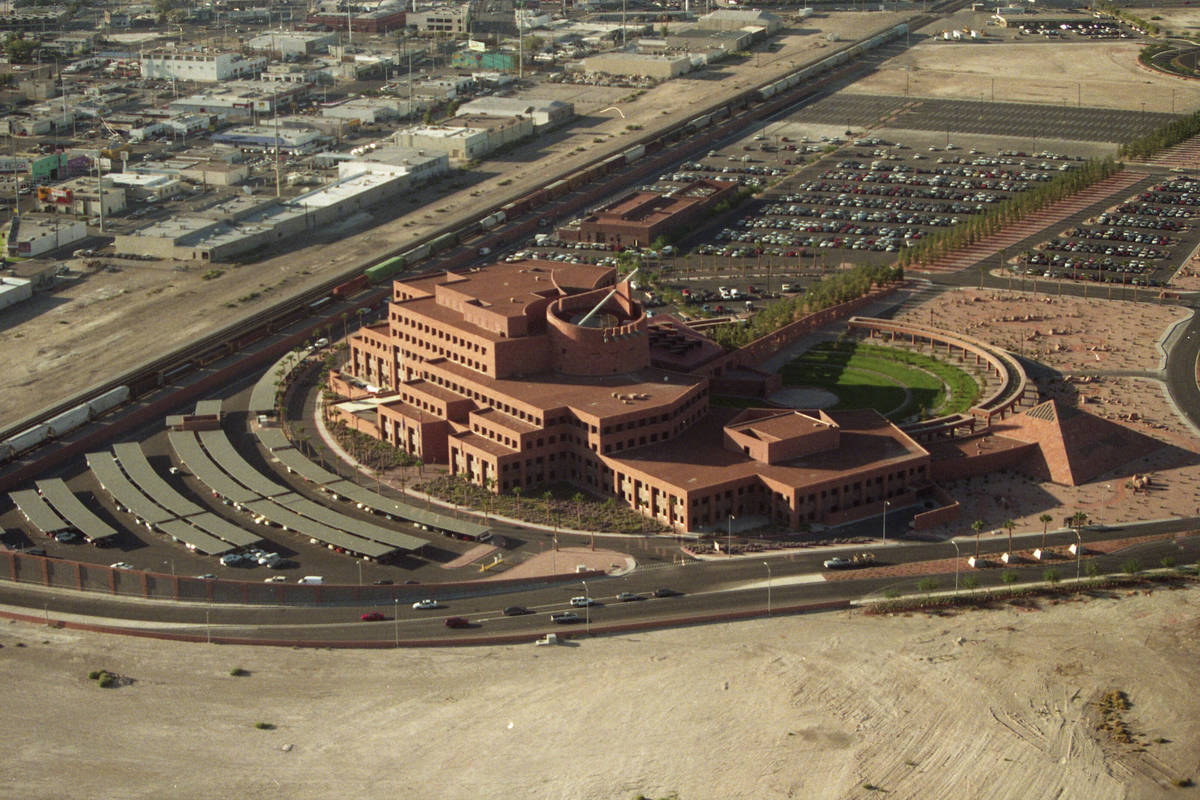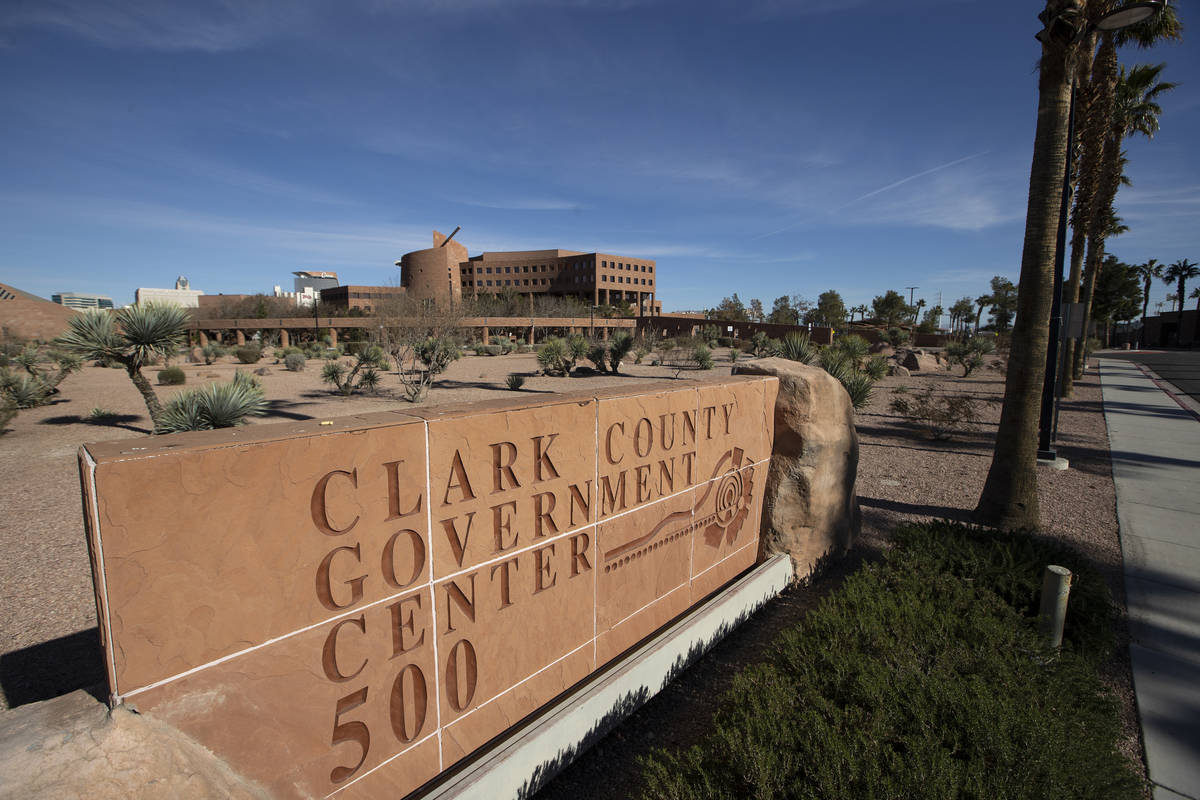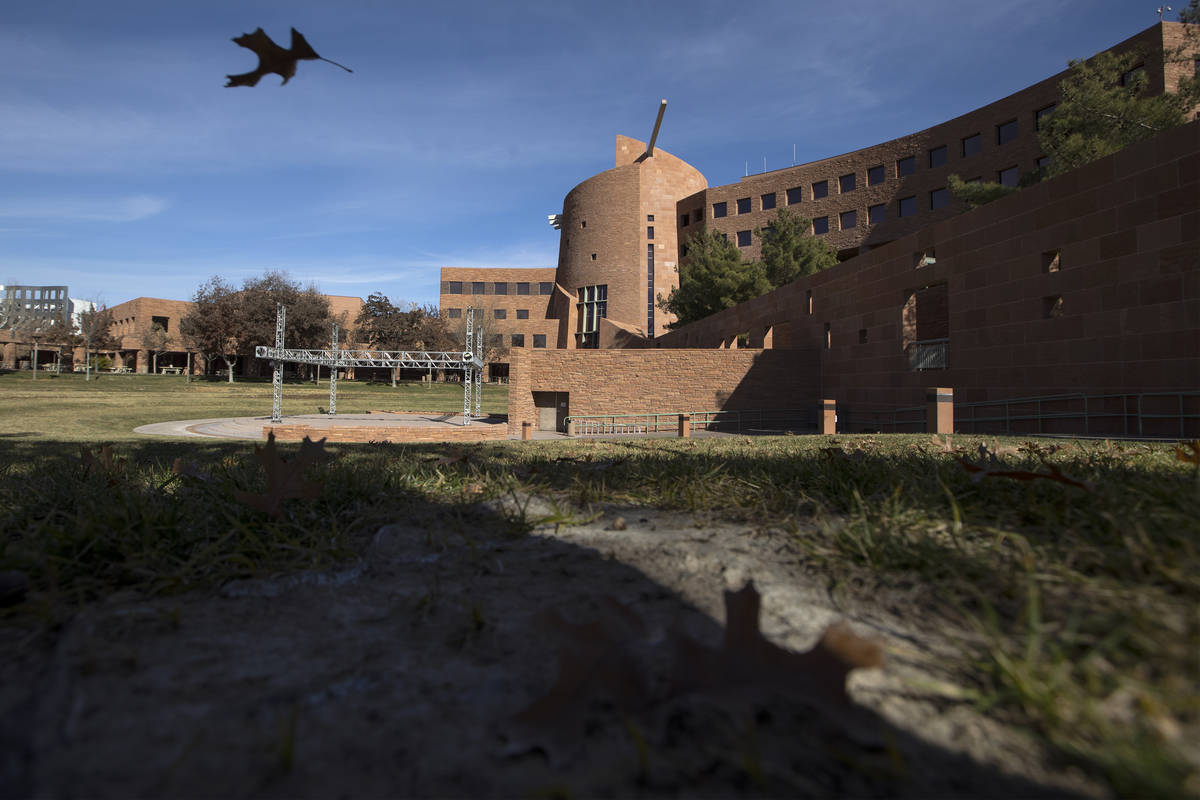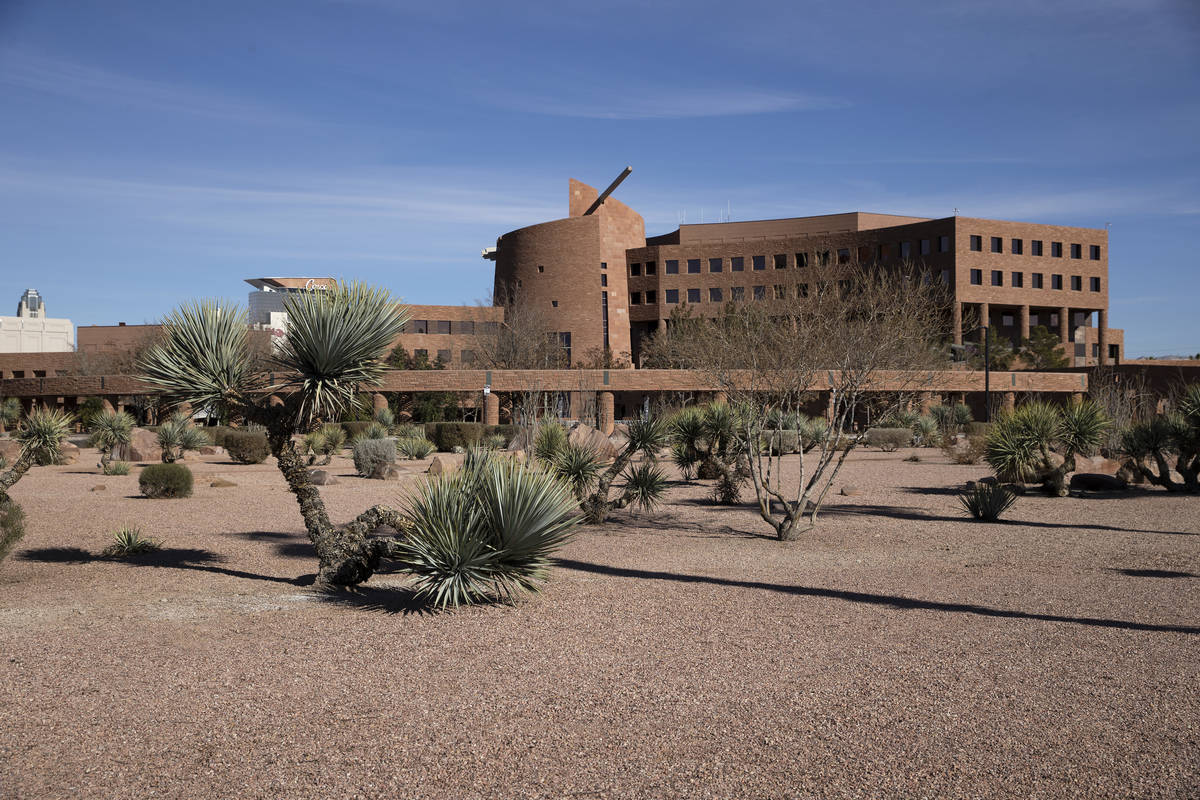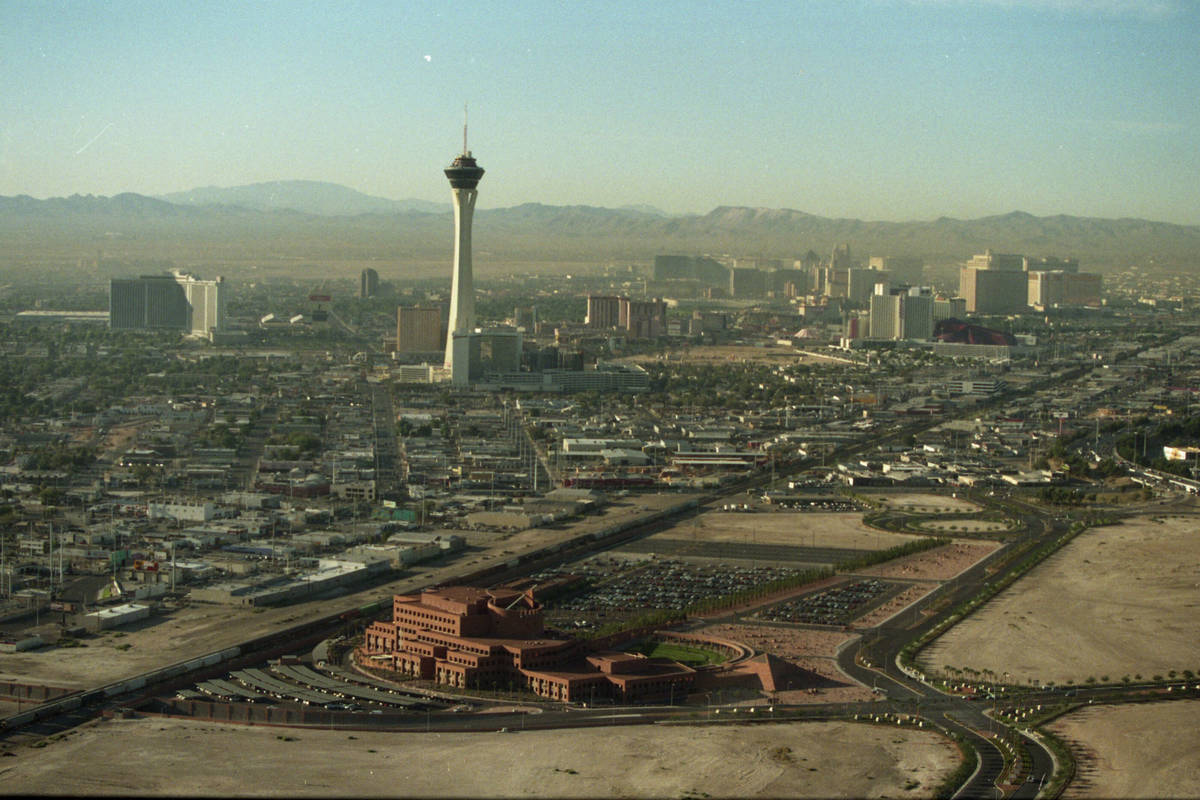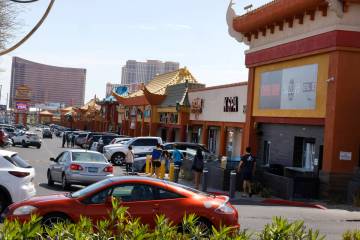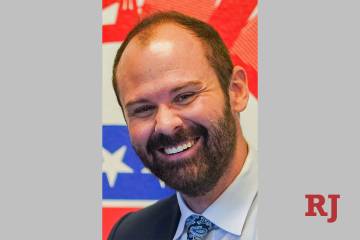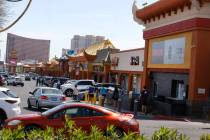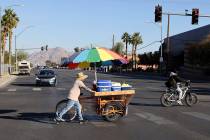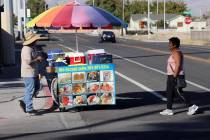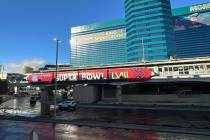7 dead, dozens sick: Lawsuit claims Clark County headquarters to blame
Clark County employees were exposed to toxic chemicals while working at the county’s government center, leading to seven deaths and many others to become seriously ill, according to a recently filed lawsuit.
The government headquarters, opened in 1995, was built in downtown Las Vegas on the southern portion of a contaminated, old Union Pacific Railroad site sold to the county by the city. Preceding the $66 million office complex’s construction, the rail company cleaned the site of pollutants, such as heavy fuel oil, under a state-approved remediation plan, according to Review-Journal archives.
But the county should have known that monitoring, testing and mitigation efforts by Union Pacific, the city and later itself, were grossly deficient on the 39-acre parcel, the court filing alleges.
The lawsuit was filed Jan. 6 in county District Court on behalf of more than 50 plaintiffs, including seven who have died and are represented by family. It is unclear how many of the workers named in the lawsuit, if any, remain employed by the county, and messages left this week for their attorney and co-counsel were not returned.
The filing contends that the county, city, Union Pacific and other companies associated with rail operations failed to provide warnings of the health hazards that were present due to the historical use, storage and disposal of toxic chemicals at the old rail yard.
As a result, county workers grew sick and developed serious illnesses such as cancer, according to the lawsuit. But employees were consistently told that there was nothing toxic about the building and complaints to supervisors about workplace conditions were dismissed or ignored for years, the court papers said.
The city and county separately declined to comment on the lawsuit this week, citing their practices of not speaking publicly about ongoing or pending litigation.
Union Pacific had not been able to review the complaint in detail as of Friday, according to spokesman Tim McMahan.
“As we understand it, the claims allege exposure to certain chemicals at the company’s former Las Vegas Railyard, which was sold to the City of Las Vegas many years ago,” he said in a statement. “Prior to the sale, Union Pacific performed environmental work under the direction of the Nevada Department of Environmental Quality.”
Law firm investigates
Health issues were noticed “almost immediately” when the government center opened, according to the lawsuit, as young employees and those whose jobs required them to work in the basement were getting sick.
The law firm representing the some five-dozen plaintiffs, Mueller & Associates, Inc., said it began a probe in early 2019 into “the unusually high rate of illness and disease being experienced by these workers” in an effort to determine if a link could be established between sicknesses and pollutants on the site.
Black dust allegedly came from air registers in the basement and would cover some desks and cling to the sides of cubicles. Some workers tried to block the soot by placing screens on air vents, and cleaning the material off their desks had become “a daily chore,” the complaint reads.
A toxicologist tested the soot that had been collected by an employee and, in June, linked outside ground contamination to indoor exposure, according to the legal filing.
When a medical doctor later examined the toxicology findings and employee illnesses, he connected their diseases to exposure from toxins, the lawsuit said.
Contamination history
The Union Pacific rail yard, developed at the turn of the 20th century, was used as a maintenance hub, fueling facility and battery and diesel-engine repair shop in an area today broadly bordered by Charleston Boulevard, Interstate 15, Highway 95 and Main Street, according to the legal filing.
For more than a decade, waste materials — such as jet fuel, cleaning solvents and liquid from electrical transformers — were dumped into an open trench, which was later burned and moved into a disposal pit situated where the government center was ultimately built, the lawsuit said.
By the late 1960s and early 1970s, city and county officials knew that the property was polluted, and their knowledge grew during the next two decades as more contamination was discovered including from a pair of large diesel fuel spills in the mid-1980s, according to the lawsuit.
But as rail operations ended, the 320-acre Union Pacific territory was sought by the city for development. It would eventually become home to the government center and Symphony Park.
In recent years, Symphony Park’s development also required Union Pacific remediation, specifically the removal of contaminated soils to an authorized disposal facility, according to a Nevada Department of Environmental Protection fact sheet on the project.
City sold land for $10
In the early 1990s, the county was seeking to relocate, centralize and grow its administrative offices that were scattered downtown.
Desperate to keep the county from leaving to avoid hurting redevelopment efforts, the city purchased a roughly 39-acre plot on the southern tip of the Union Pacific land. It was bought for $4 million and sold to the county for just $10 in a deal approved in 1991, according to Review-Journal archives.
The suit claims the city did “absolutely nothing” to investigate, test or monitor the property for contamination before buying it or turning it over to the county.
Four years later, the government center opened on Grand Central Parkway, where today it hosts county offices and government meetings.
Contact Shea Johnson at sjohnson@reviewjournal.com or 702-383-0272. Follow @Shea_LVRJ on Twitter.
County Government Center La... by Las Vegas Review-Journal



